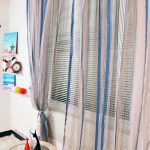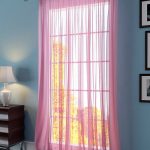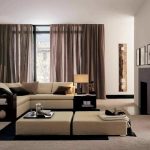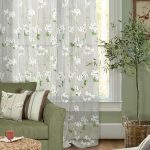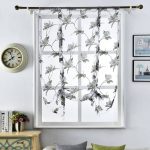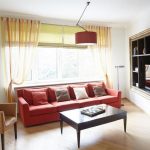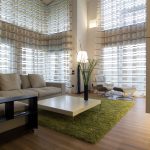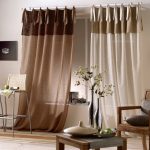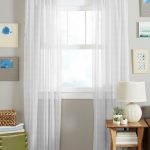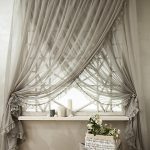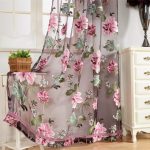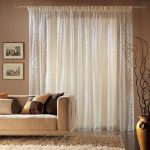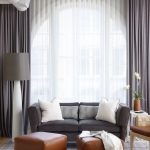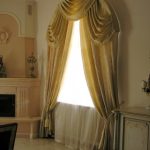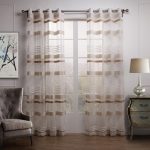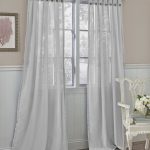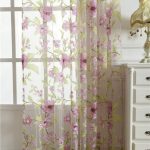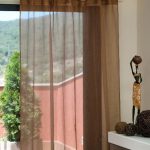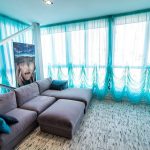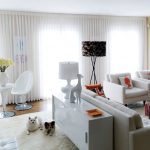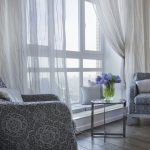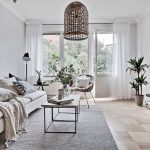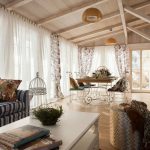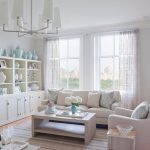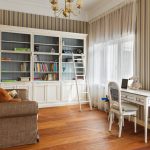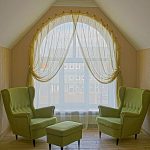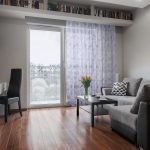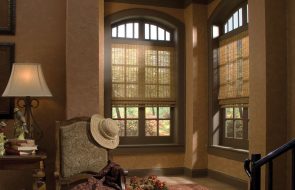The living room is usually the largest room in a house or apartment. The whole family spends a lot of time here, and guests are welcomed, so the decoration of the room should be impeccable. Curtains play a significant role in this. Thick, heavy fabric or thin tulle curtains not only decorate the room, making it unique, but also protect residents from prying eyes through the window.
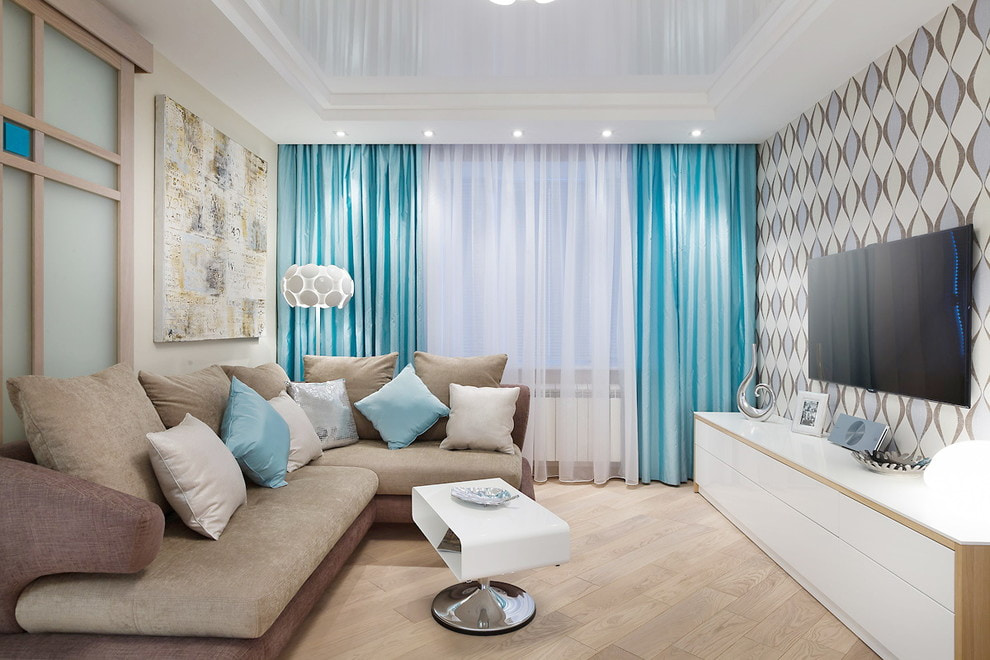
Content
- Tulle, brief description, varieties, ideas for the hall
- Varieties for the hall
- Window decoration with tulle without curtains – description, examples, photos
- Tulle plus curtains
- Curtains under tulle
- Patterned tulle - description, examples
- How to choose tulle: selection criteria, recommendations for housewives
- How to beautifully hang tulle in the hall
- What kind of tulle is in fashion now?
- Conclusion
- VIDEO: Tulle for the living room – photo ideas.
- 50 stylish tulle options for the hall:
Tulle, brief description, varieties, ideas for the hall
Tulle is a transparent, semi-transparent fabric similar to a net. It is made using special curtain machines, dyeing it in almost any color. You can choose a product for almost any existing interior, if it provides for at least some curtains.
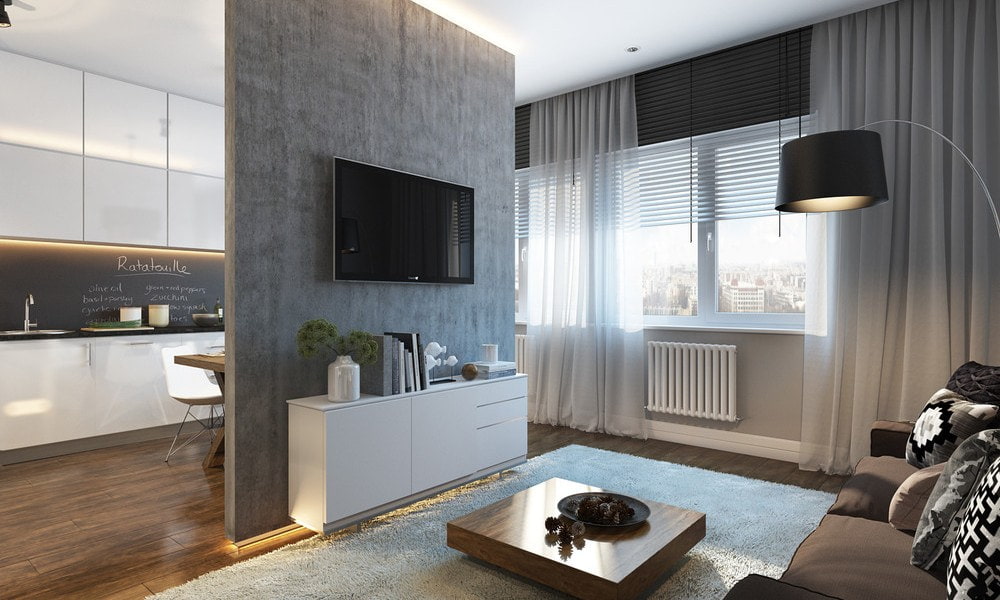
Modern types of tulle by appearance are:
- transparent;
- matte;
- filiform;
- into the net;
- with lace;
- decorated with embroidery.
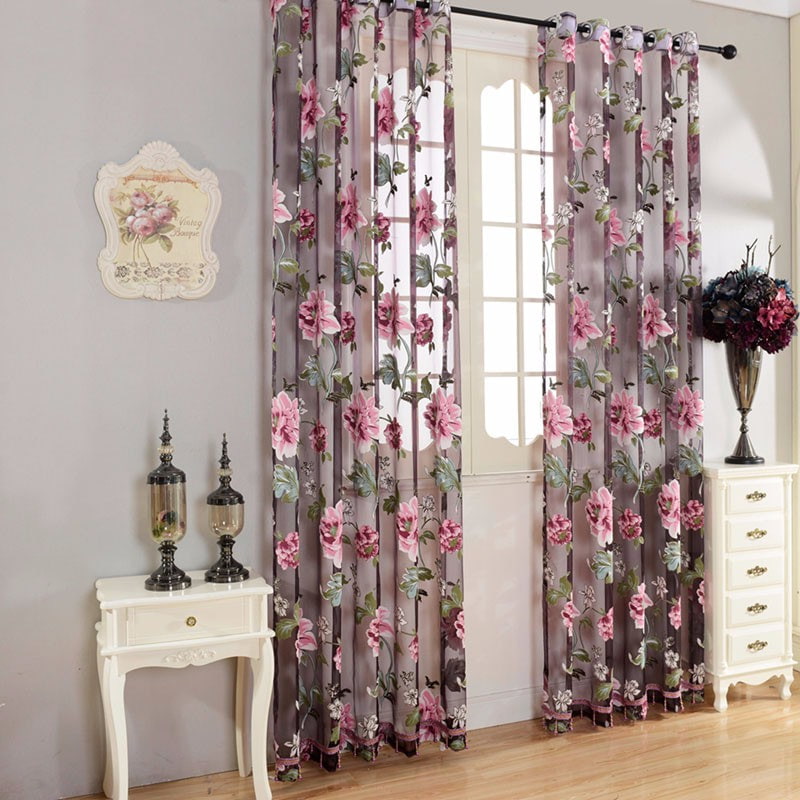
Fabrics used:
- muslin;
- veil;
- muslin;
- net;
- batiste;
- tulle;
- jacquard;
- chiffon;
- organza.
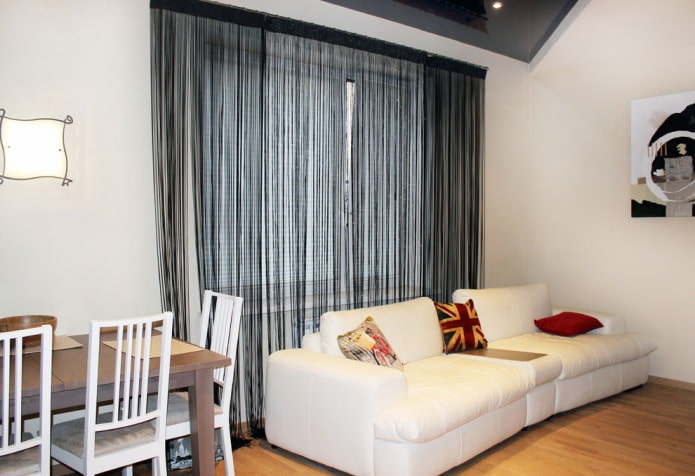
The photo also shows different ways of fastening tulle in the hall:
- on hinges;
- on eyelets;
- using tape.
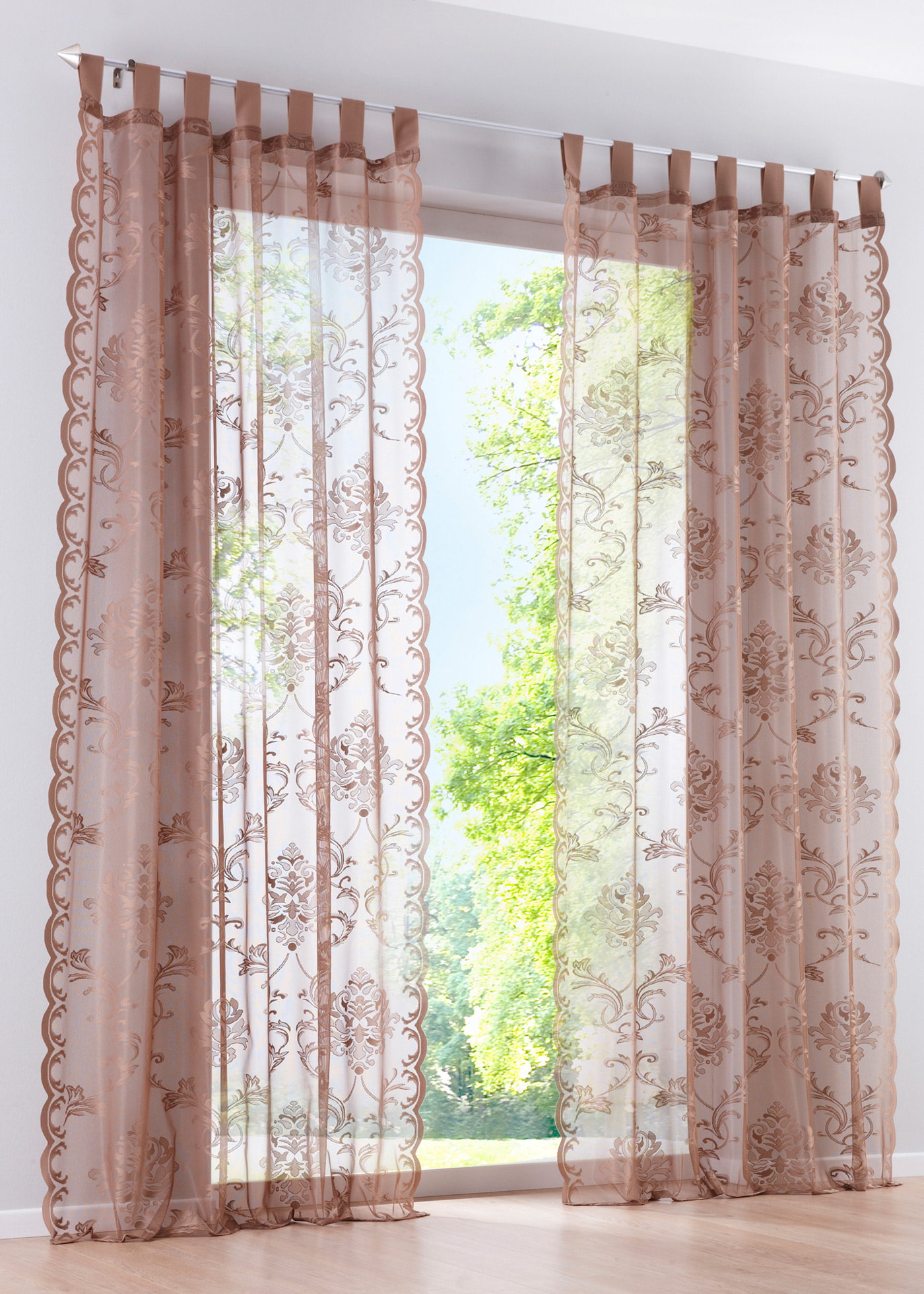
Transparent curtains vary in length and location. In spacious combined spaces of kitchens-living rooms, bedrooms-halls, studio apartments, the finest drapery, suspended on a cornice hidden in a stretch ceiling, can become an original zoning element, playing a purely symbolic role. Such textiles can be hung both on windows, combining them with each other, and on a wooden, plastic, metal door, an arched opening. In the latter case, a “crumbling” thread product is ideal.
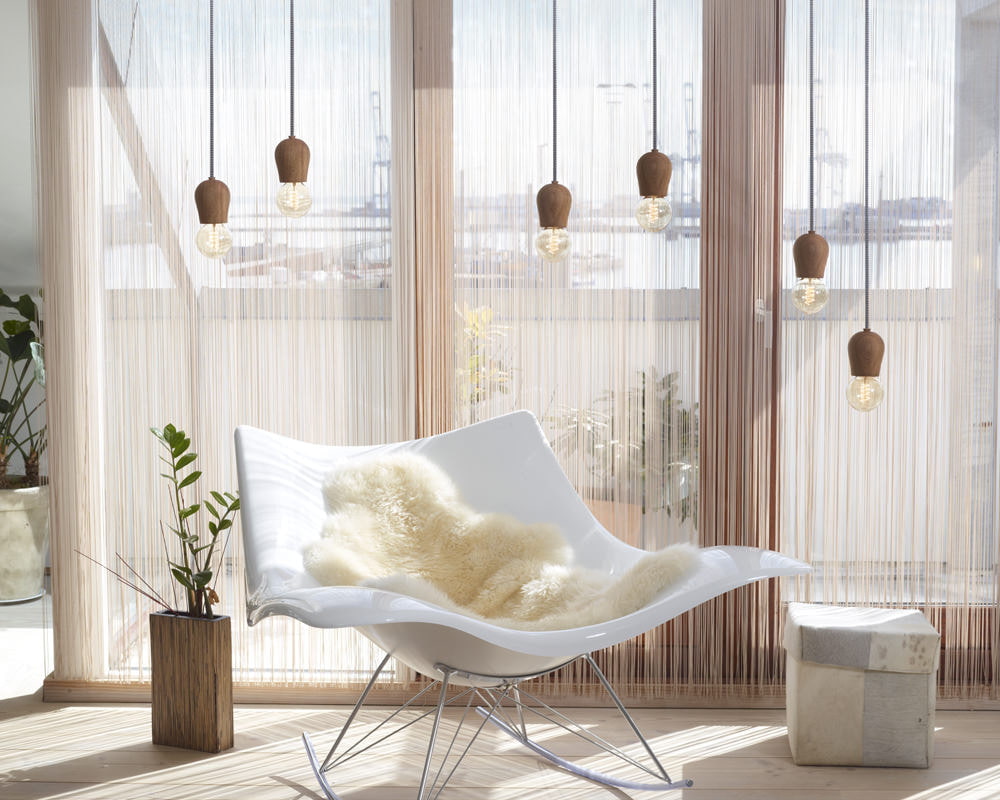
Advice: The use of tulle curtains of one type or another, color, depends on the size of the space being decorated, its stylistic design.
Varieties for the hall
The right tulle for the hall is chosen based on the personal preferences of the owners of this room. This is a single-layer, double-layer drapery that covers a single window or covers two or three at the same time. When the windows are located on several walls at the same time (for example, as in the case of a bay window), it makes sense to decorate them with the same type of fabric. The length of the curtains is made to the floor, less often - to the window sill or the middle of the wall below it.
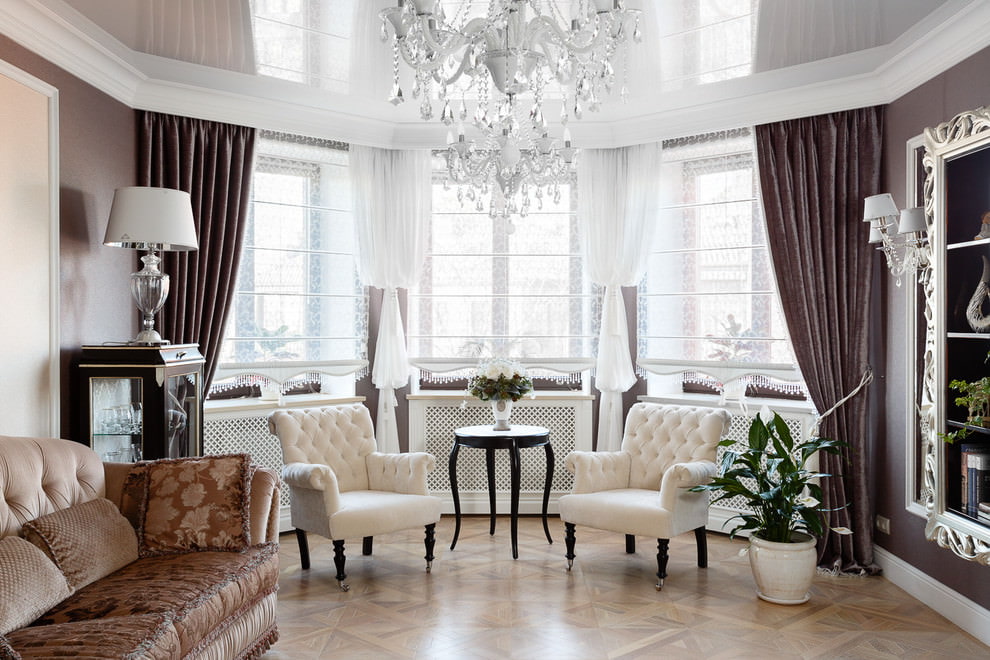
Color is an important factor when decorating rooms. Usually it is white, beige, black, but interiors in the style of modernism, pop art, futurism allow acid green, neon blue, bright yellow options. The currently very popular option of gradient coloring (that is, a smooth transition from a darker to the lightest tone) is implemented in different ways - traditionally it is "white top - black bottom", but the arrangement from right to left, diagonally, in the form of narrow stripes, rainbow multicolor is also acceptable.
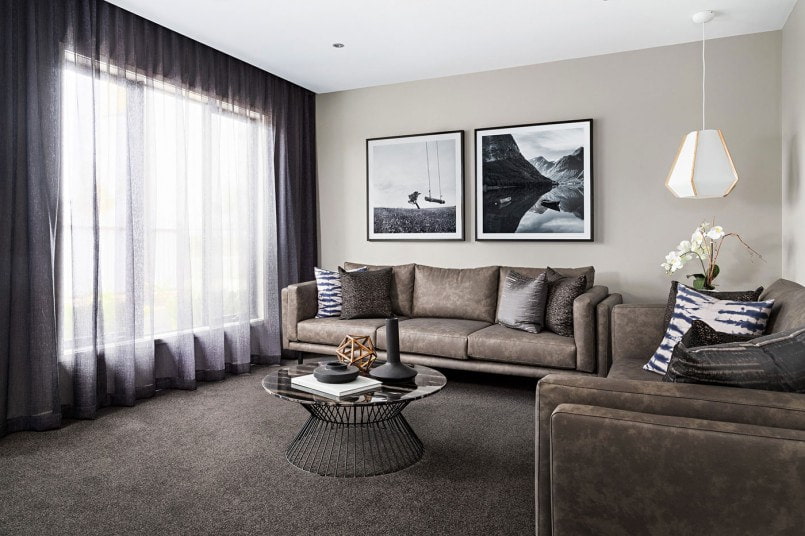
The most commonly used solid colors are:
- snow-white;
- apple;
- white and pink;
- creamy beige;
- olive;
- soft blue;
- peach;
- blue-black;
- chocolate-milk;
- champagne;
- light green;
- golden yellow;
- lilac.
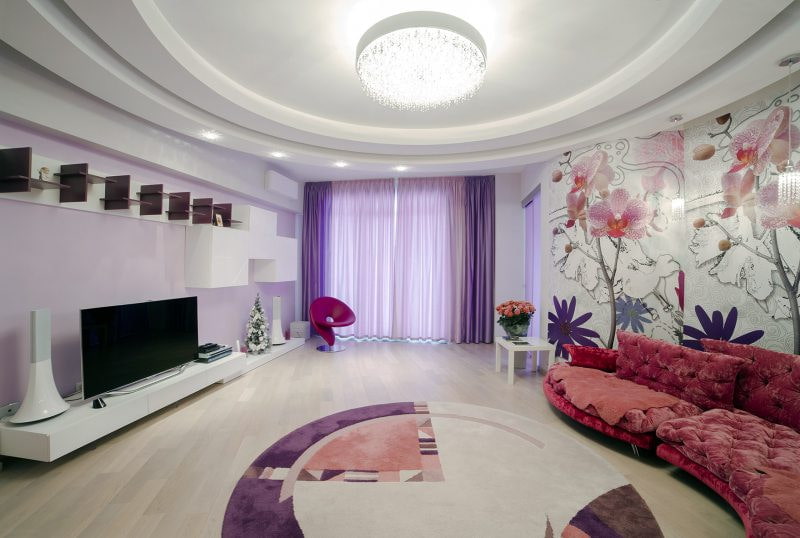
Advice: When the living room is decorated in a classic, neoclassical style, light tulle curtains are decorated with a golden border, rare embroidered details, ties, tassels.
Window decoration with tulle without curtains – description, examples, photos
Various options of tulle for a hall without curtains are also quite acceptable. Short drapery, just reaching the plane of the window sill, is ideal for horizontal or recessed windows, as well as tight rooms, where every centimeter of free space counts.
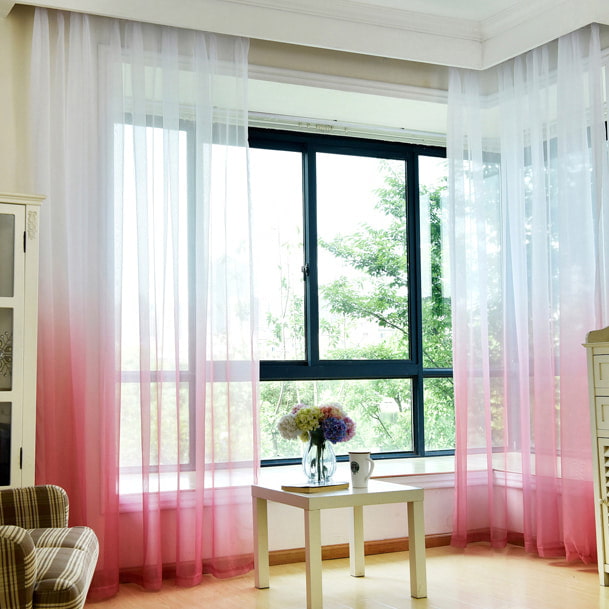
A smooth, mostly light, single-color floor-length curtain is ideal for minimalist style. The second most popular option is a design of four transparent curtains, where one simply covers the entire wall with a window, the second is laid out in the form of an inverted dome, and two more are laid out in approximately the same way, but shifted to the corners of the room.
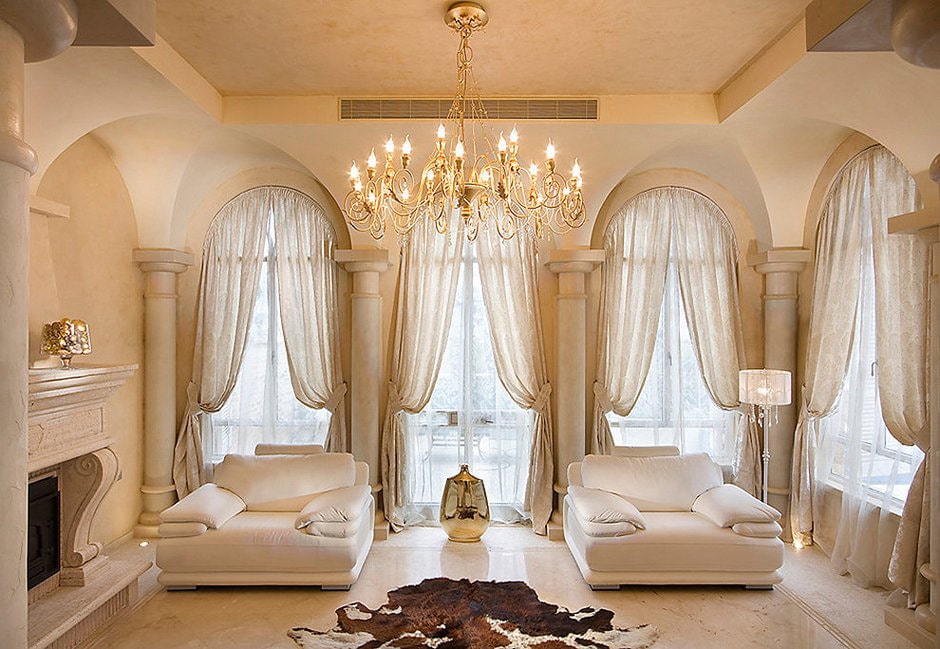
The advantages of a design consisting only of tulle draperies:
- no need for a heavy curtain rod – even a “string” will support the tulle;
- such products are easy to wash, most of them do not require ironing;
- the room is quickly transformed without becoming darker and more cramped.
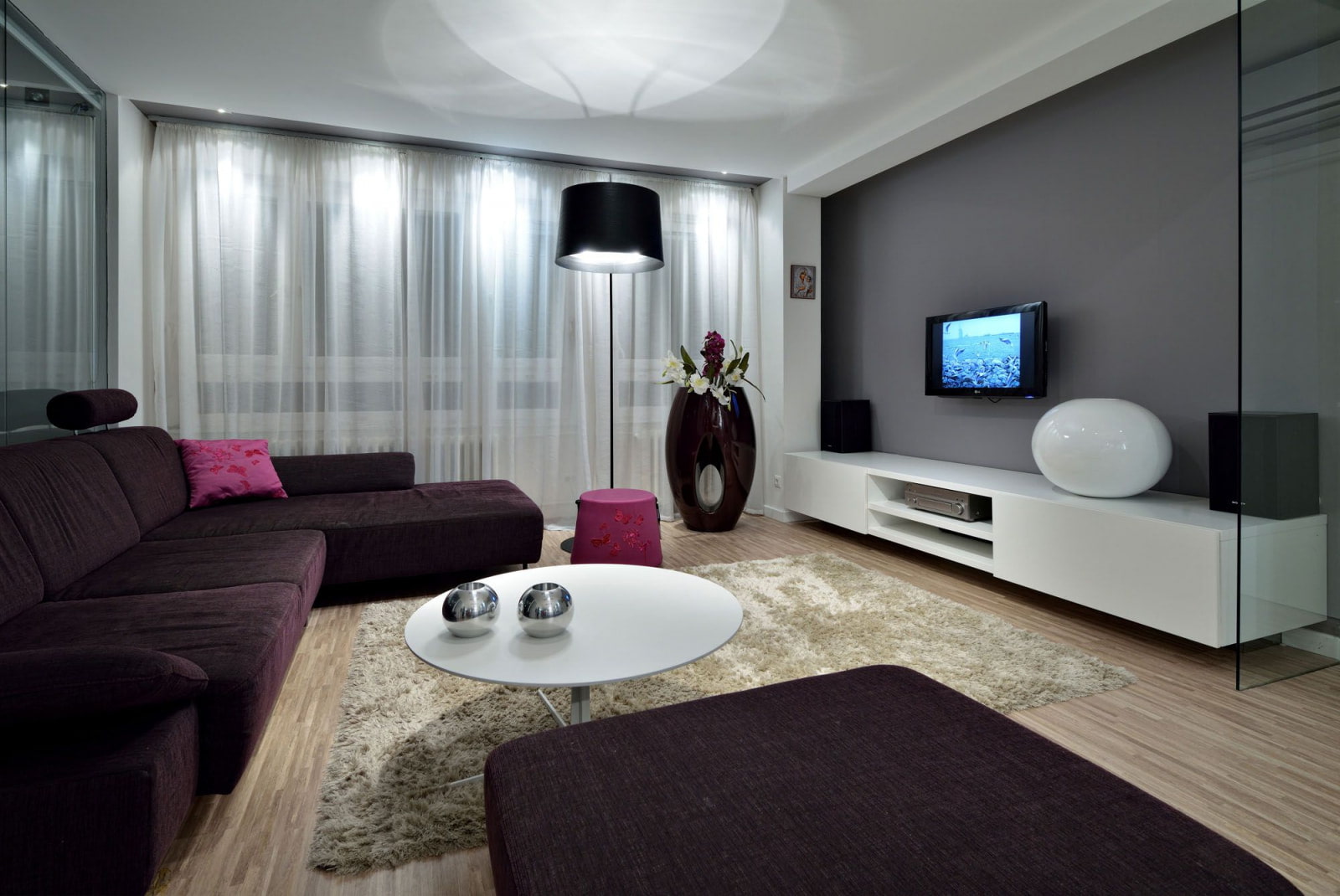
A double-row product on eyelets matched to the curtains looks great here. Thin muslin or so-called "thread curtains" often have several layers, and the window is decorated with two or three colors at the same time. For very large windows, luxurious products with photo printing or images applied using the batik technique are suitable. Usually, a colorful picture is not applied completely to the entire fabric, but only frames the rectangle of the window, becoming a unique accent of the room.
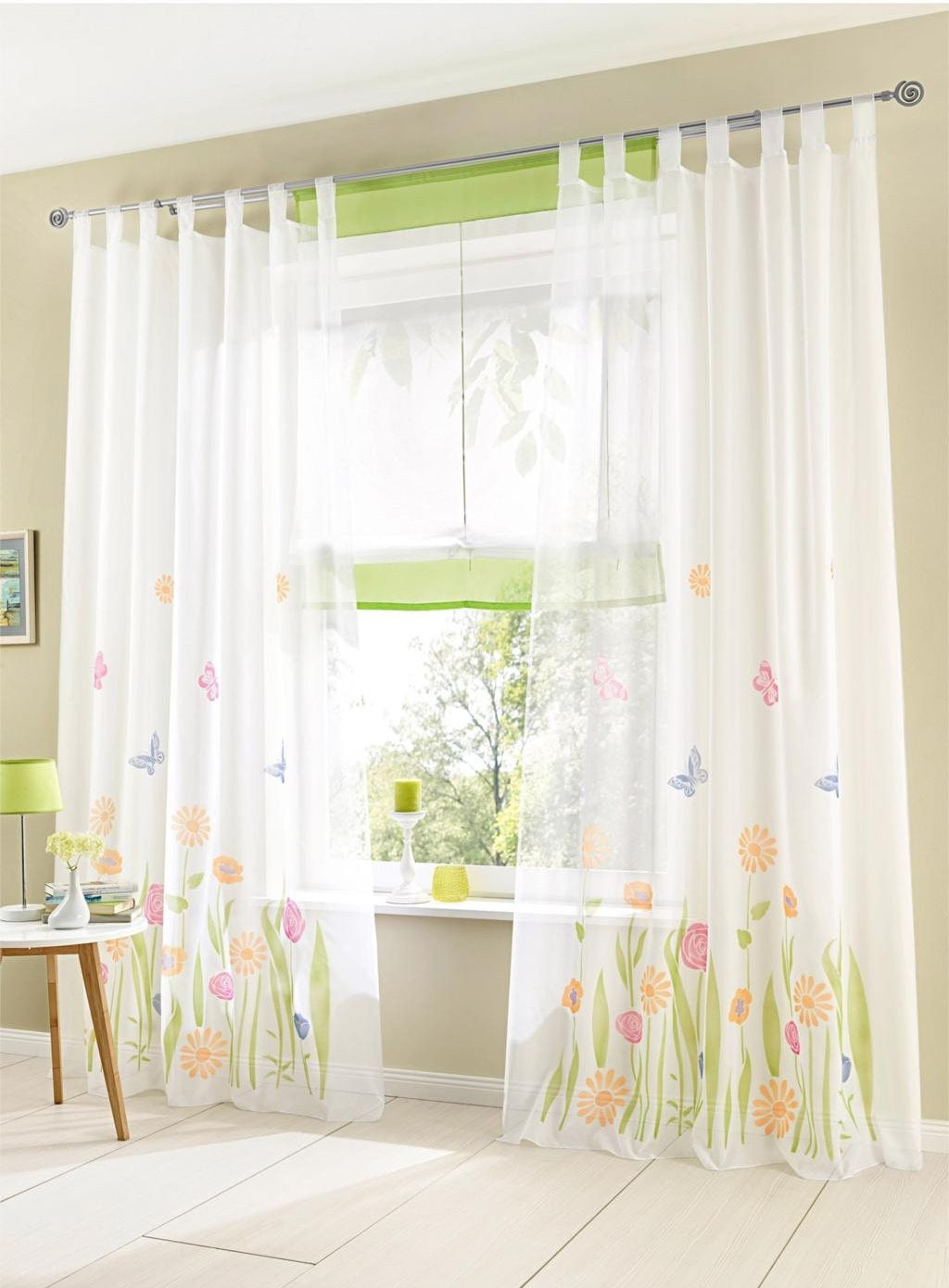
Advice: If the tulle textile is decorated with a bright picture, it is not advisable to lay it in the form of many textured folds - the image will become difficult to distinguish and will lose its attractiveness.
Tulle plus curtains
Thick curtains combined with tulle are the most popular option at all times, as evidenced by numerous photographs on the pages of glossy design magazines. Velour curtains together with tulle, which has a crepe weave, create a changeable picture - their color, texture, change depending on the level of illumination, the angle of incidence of light. Tulle, along with curtains, is decorated with lambrequins, which are a narrow strip of fabric running along the very top of the product or a luxurious structure made of voluminous flowers, using textured ruffles, flounces.
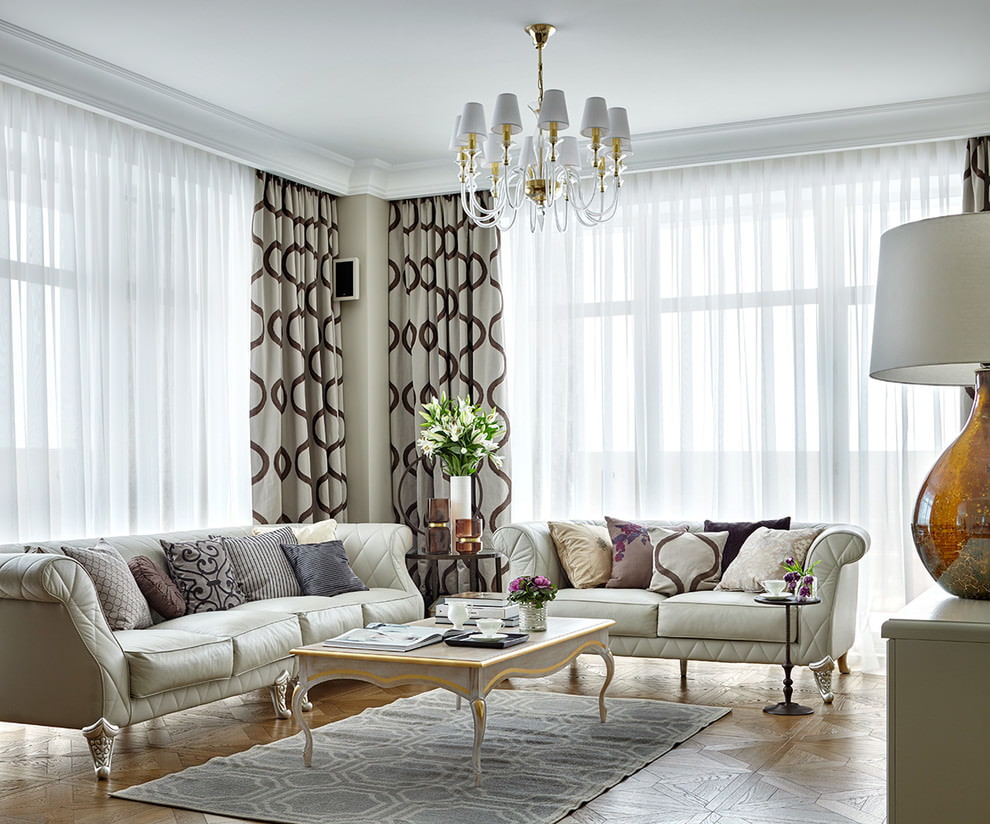
It is important to choose the right tulle and curtains for the furnishings in a particular room - if the furniture is dark, light draperies are recommended, when the wallpaper is patterned, plain curtains are needed. Colorful floral patterns on curtains are acceptable for a rustic style, checkered or houndstooth patterns are for country, and intricate weaves in dark tones are for gothic.
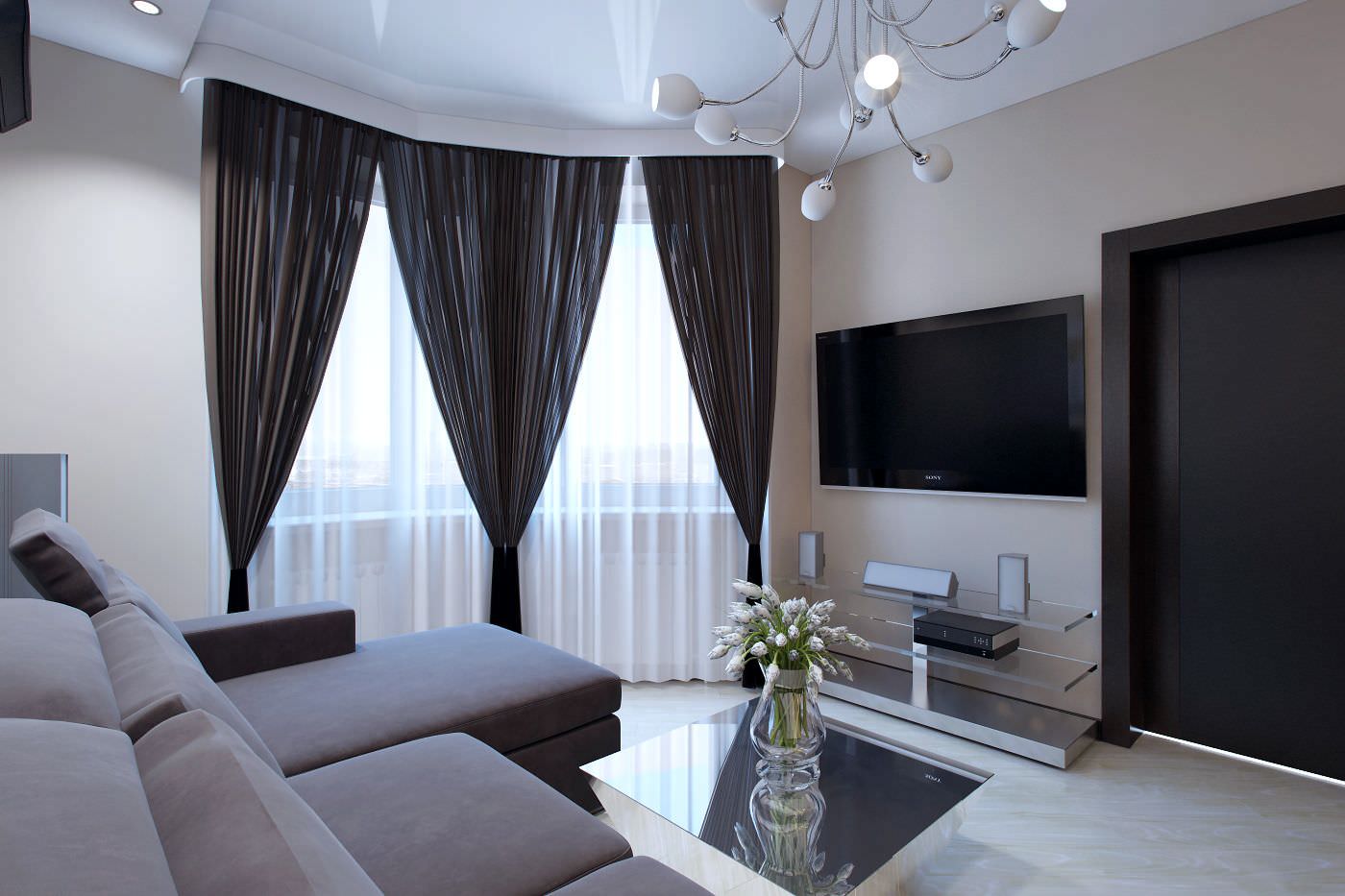
Curtains under tulle
Heavy curtains are also easy to combine with tulle. The word "curtains" literally means "door", that is, a product that protects against the penetration of strangers, but at the same time is capable of closing and opening.
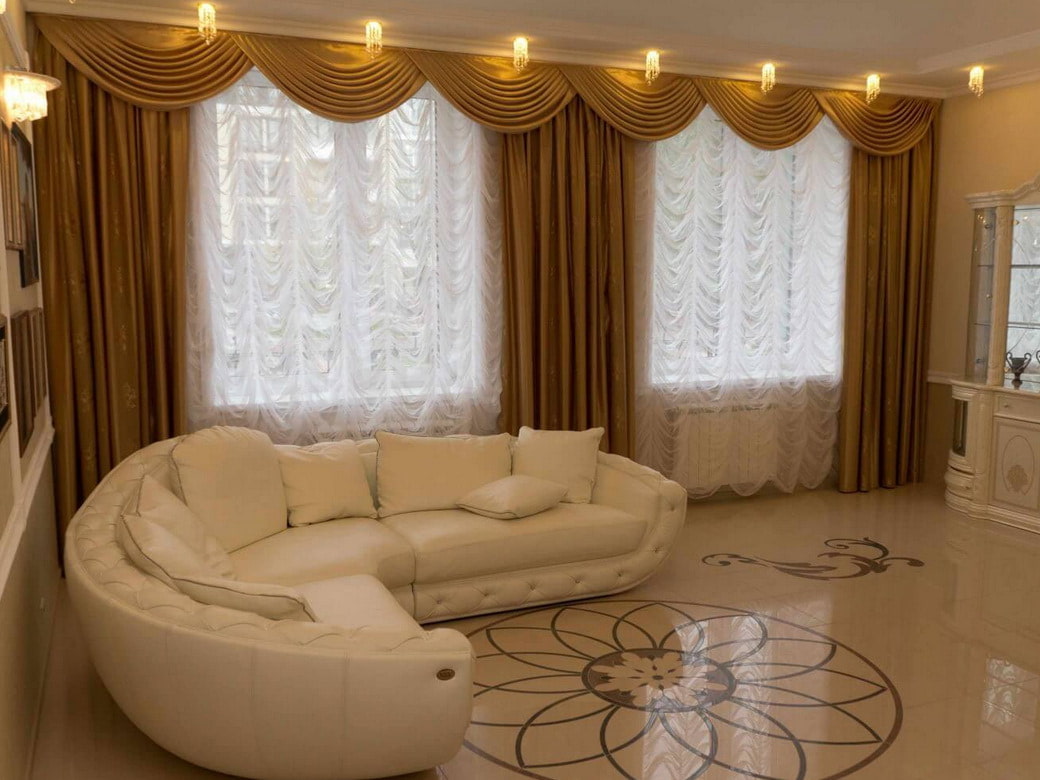
Curtains are often equipped with grabs made of all sorts of materials, such curtains are made two or only one. Dense fabrics are usually made darker than the tulle itself, but there are exceptions. Multi-colored curtains are selected for simple plain tulle fabric, and more strict, restrained options are selected for patterned ones, decorated with knots, ruffles, and embroidery.
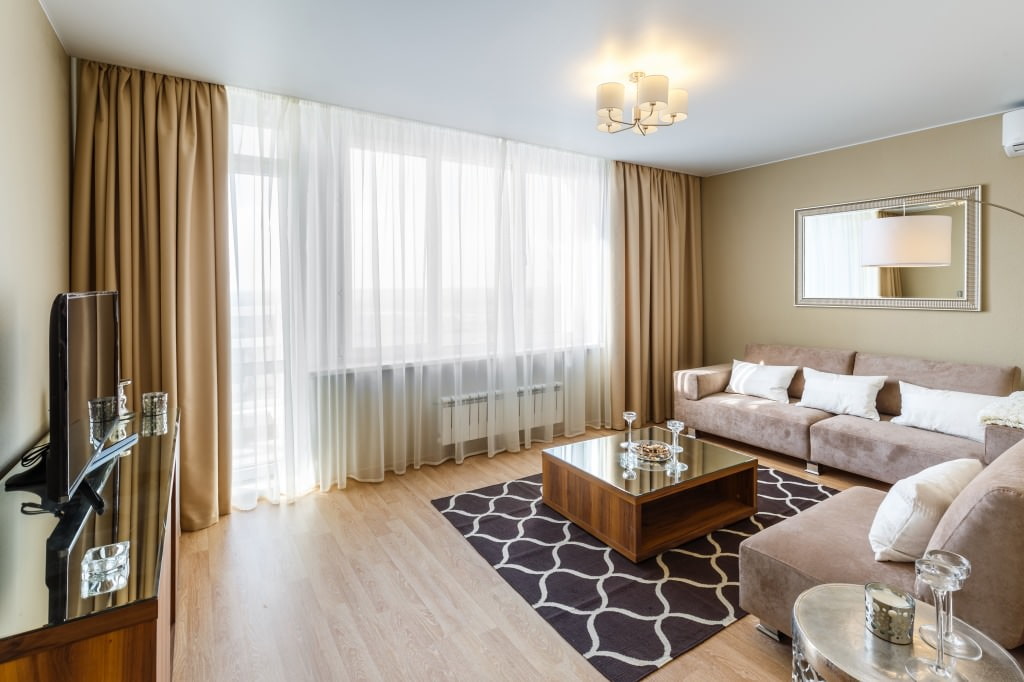
Patterned tulle - description, examples
Tulle in the room is often decorated with an abundance of intricate patterns, including multi-colored ones - it looks incredibly beautiful, luxurious, expensive, especially if the fabric is shiny. The main design options are flowers, leaves with branches, silhouettes of birds, butterflies, abstractions. Less common are full-fledged plot paintings - usually these are individual items, made by hand or to order.
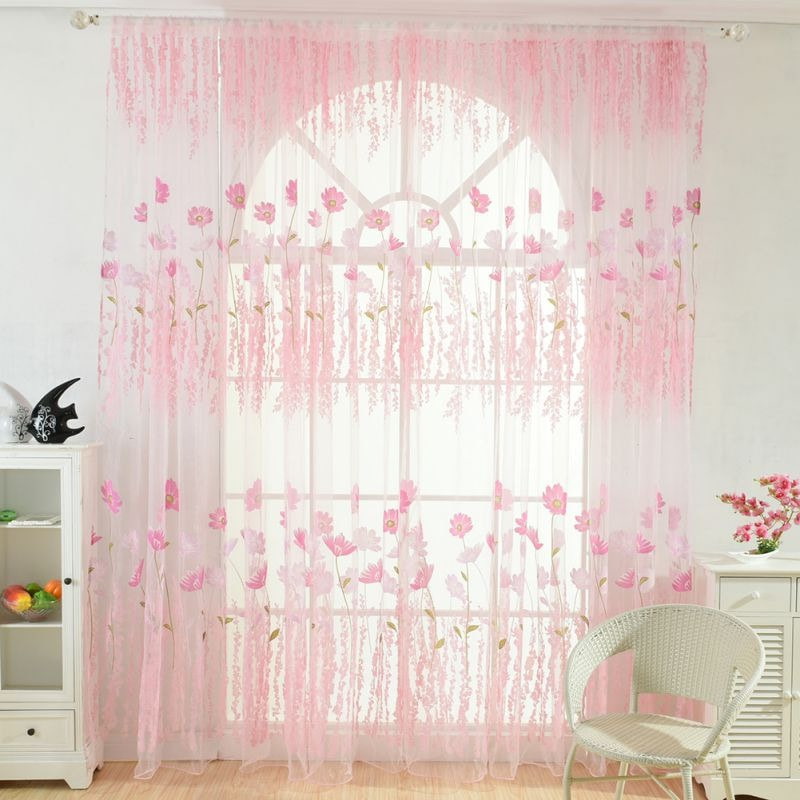
The product with knots, voluminous embroidery has an interesting texture. Depending on the number of colors used, it decorates a room in the Baroque, rustic, art deco or African style.
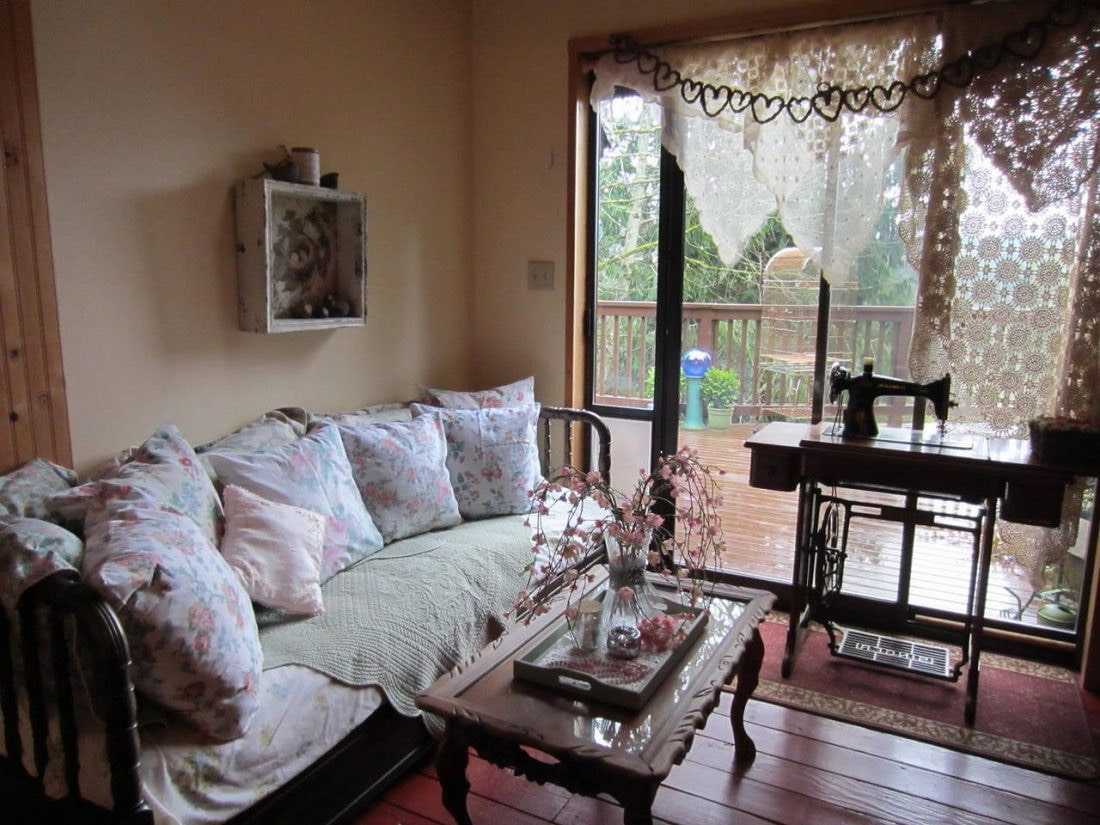
How to choose tulle: selection criteria, recommendations for housewives
The most beautiful tulle for the hall in the photo from the Internet does not always look luxurious and unique - a simple white drapery will perfectly decorate a small living room, decorated in a rustic style. A product completely devoid of patterns will suit minimalism, and curtains, abundant in lambrequins - for baroque and classics.
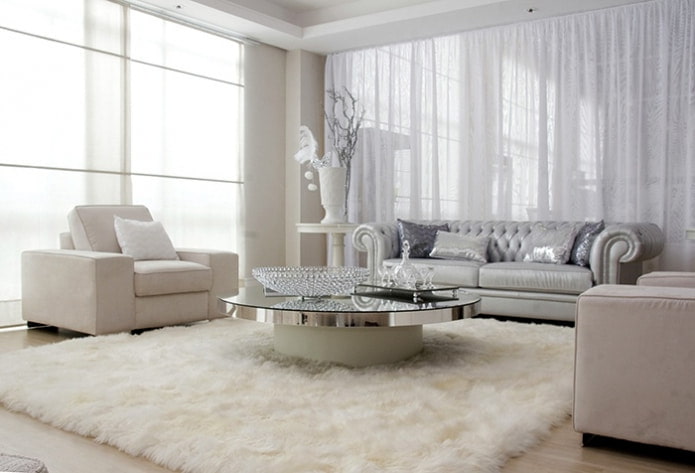
When choosing, first of all, it is important to correctly determine the appropriate length. To do this, measure the height from the floor to the ceiling. Excessively long options, folds falling to the floor, are suitable for baroque, renaissance, empire, shortened - for country, minimalism. Rooms decorated in a modern high-tech style will suit shiny fabrics with a silvery sheen, muslin consisting of metallized threads or a regular white option, with a photo image of a large city, cars, simple geometry.
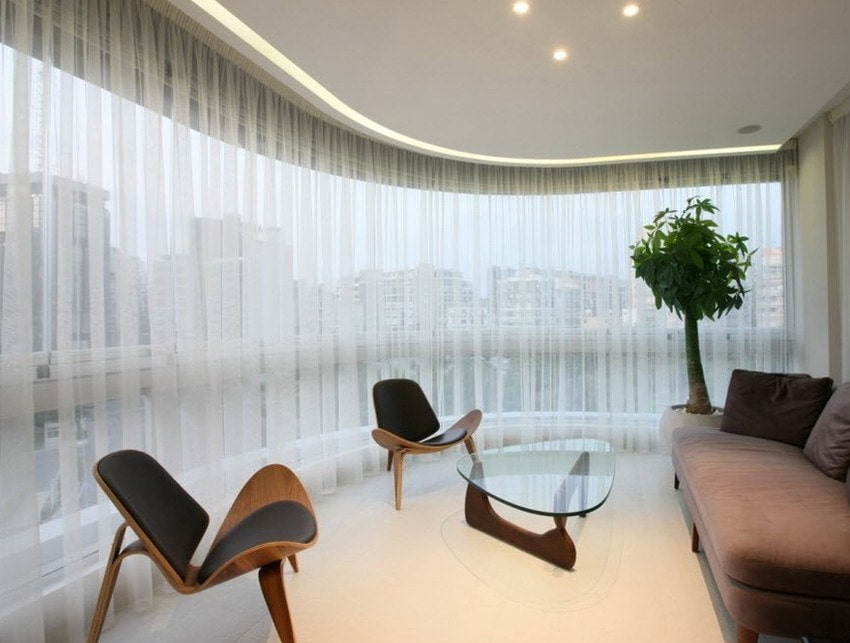
Dark materials are suitable only for spacious, well-lit rooms with high ceilings. For smaller spaces, light transparent fabrics that do not prevent daylight from entering are recommended. When using several colors, it is important to choose one main one, which will take up to 60-70% of the space being decorated, one secondary one - it will take no more than 35-30%, and another color - these are small color accents. It is not recommended to use more than three colors at the same time - the only exceptions are boho interiors and pop art.
How to beautifully hang tulle in the hall
The most ordinary tulle for the room in various photos, not to mention more original products sewn in the workshop, decorates any room very much. To begin with, it is important to decide: will it be a single-layer version or a more complex design, how many colors are supposed to be used. If the drapery is supposed not only for the windows, but also for the doors, as a zoning detail, it is carefully selected by color - it is advisable to use the same in all places of the room.
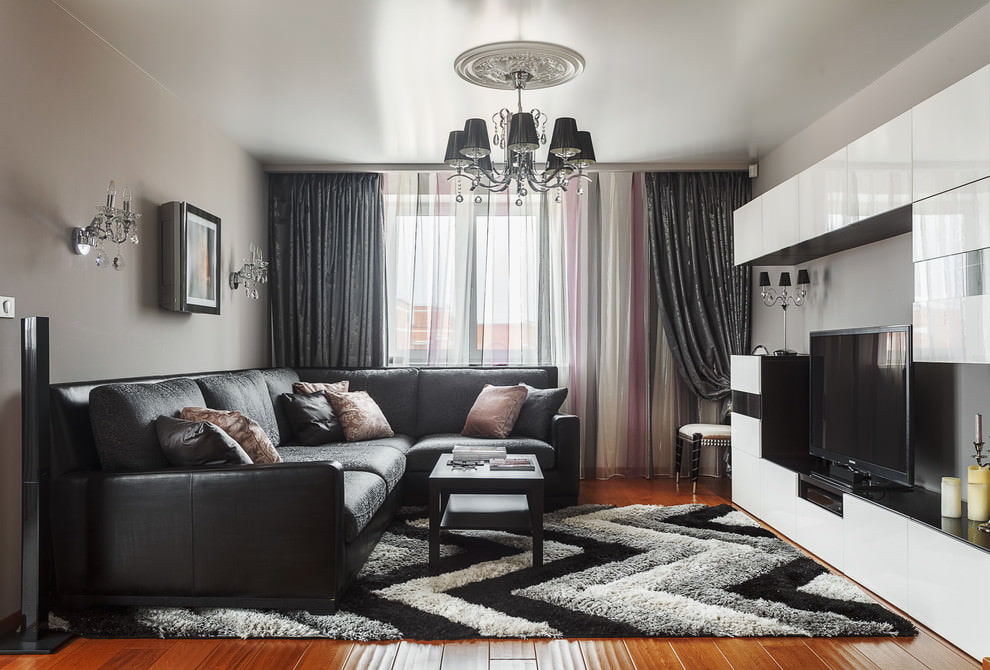
Options for hanging tulle depend on the design of the curtain rod:
- in the form of a pipe, a rod - here rings with hooks and eyelets of the appropriate diameter are used;
- made of metal profile - single-row or multi-row fastening, hanging is done with clips, hooks;
- string - thin, invisible, consists of a metal, polymer string or several, easily holds one or three draperies.
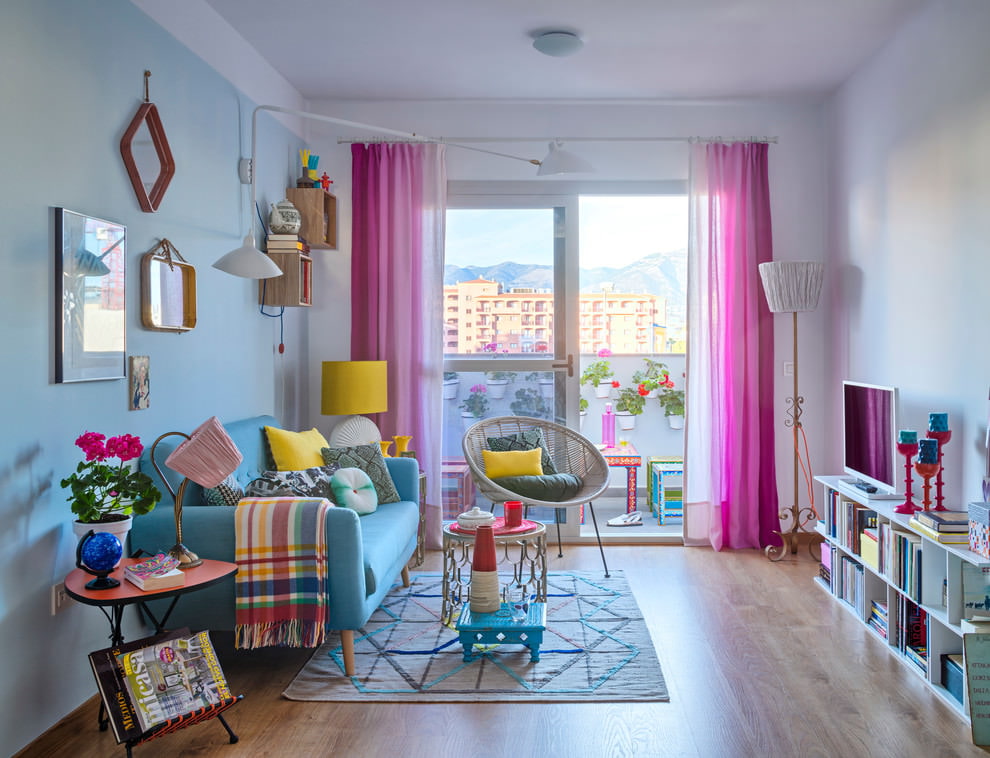
You can sew an original tulle product yourself. To do this, you will need a sufficient amount of material, a sewing machine, threads, scissors, fasteners, patterns, as well as a clear idea of what the end result should be. Often, tape and drawstring are used to hang tulle curtains; if you have the necessary equipment, you can attach eyelets to the curtains yourself - then they will become indistinguishable from factory ones. Colored ribbons, textile flowers, beads, metal grabs, etc. are suitable as decorations.
What kind of tulle is in fashion now?
One of the newest trends offered by designers is the placement of tulle over curtains. The short version of such drapery is also considered very fashionable now. New items in curtain stores this season are Roman blinds made of the finest lace material. They look best in the style of Provence, Scandinavian, classic interiors.
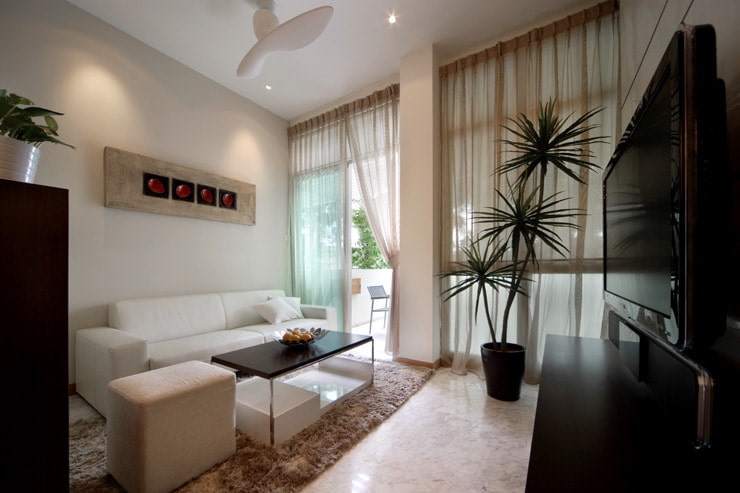
The romantic interior style, decorated in "powdery", pastel colors, is fashionable now. Light silk fabrics, decorated with many tassels, combined with curtains supported by metal rings, are also often found. Linen openwork options are used mainly in ethnic, ecological interior styles - their coloring remains natural or the textile is slightly tinted, including smooth gradients.
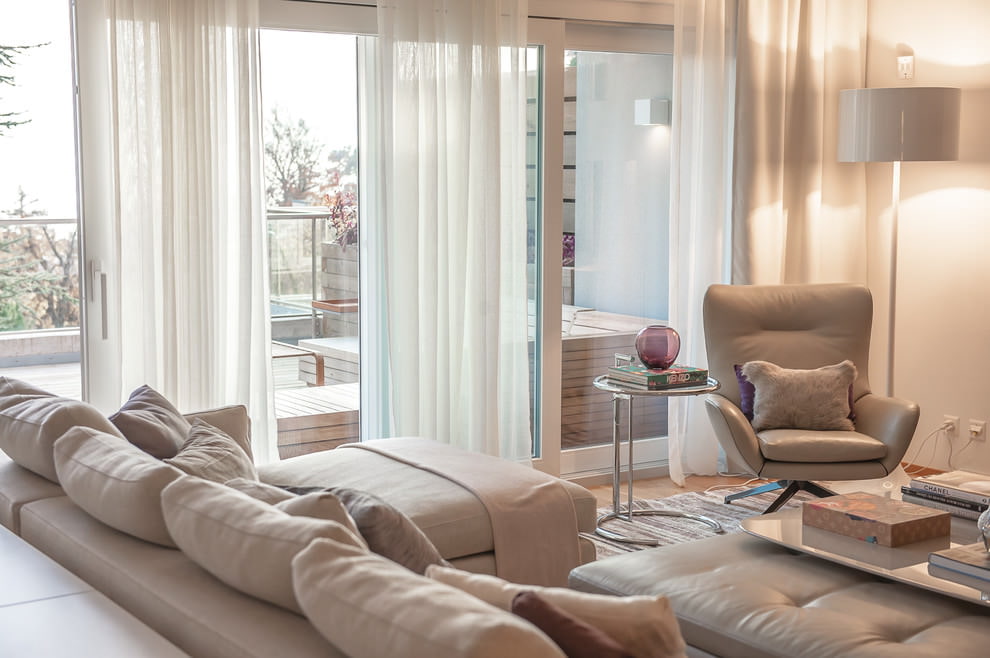
Also trending are damask patterns combined with “rustic” textures, which will best decorate a Scandinavian interior, as well as a modern one. Diamonds, “flies”, made both textured and contrasting, often decorate mesh draperies. Curtains embroidered with roses, tulips, fantasy branches of paradise flowers will not leave anyone indifferent.
Conclusion
Modern store-bought, hand-made thick curtains and the finest tulle for the hall can give the room any desired mood, quickly transform it with taste. The product is selected by color, pattern, length, as well as your own taste. What type of tulle curtains is best suited for the design of a particular room is determined by consulting with a specialist in decorating rooms with textile materials.


